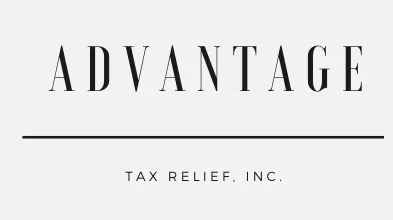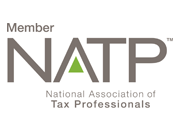Blog Layout
Don't Have Money to Pay Your Taxes?
June 6, 2022
You Have Legitimate Options
If you don't have money to pay what you owe the IRS, you have a few options to work with. Whatever you do, don’t ignore the letters from the IRS and don’t let your back tax problem go unattended. The IRS has a great deal of power when it comes to recovering money they think is theirs.
When you owe the IRS money, they can garnish your wages, levy your bank accounts, put a lien on your home and seize other assets.
Here's what you can do if you find yourself not being able to pay your taxes. Note, we always recommend getting in touch with a tax resolution professional to help avoid the harsh penalties and interest that accrued on your back taxes. It’s far easier to navigate towards tax resolution, if you have a professional working on your behalf. If you’d like to schedule a no-cost confidential tax relief consultation, contact us here.
First, make sure that you file your returns
Even if you have no hope of being able to pay your taxes, you must at least file your income tax returns. Whatever the penalties are for not paying your taxes, the penalties for not filing are much larger and non-filers can be subject to a criminal investigation. . The IRS will remove penalties for not filing and not paying but you have to have a good reason. We can request to have your penalties removed or reduced. It's also important to remember that when you file for an extension, it only gives you more time to file. Your payment date remains unchanged.
Revisit your W-4 withholdings
If your employer withholds money from your salary to pay your taxes with, you shouldn't have to worry about paying anything extra from that income source. If you do owe more, it's a sign that your withholding exemptions are incorrectly reported on your W-4 form. To make sure that you don't get into tax trouble repeatedly, you should make sure your W-4 form is correct and get advice from a tax professional about the kind of withholdings necessary for exemptions.
Make a partial payment
If you can't afford to pay all that you owe, you should pay whatever you can. While you will still be hit with interest and penalty charges, they will be smaller than they would be if you paid nothing. These charges are proportional to what you owe the IRS.
Try to work with the IRS
If you can't pay, there are resolution options available to you if you qualify for them. They include a payment plan or an offer in compromise to name a few. You need to first step up and admit to your inability to pay, though.
An offer in compromise is an agreement between the IRS and the taxpayer that allows the taxpayer to settle their debt for less than the amount owed. Sometimes, for a fraction of the amount owed. There are strict eligibility requirements and you should consult with a tax resolution specialist first.
An installment agreement, aka payment plan, is an agreement between the IRS and the taxpayer that permits the taxpayer to pay back their debt over time, generally in 60-72 months. Depending upon the amount owed, and ability to make monthly payments, determines the type of installment agreement the IRS will allow, as there are several variations of these payment plans. An experienced tax resolution specialist will guide you through the maze and myriad of these different options.
If you need an expert tax resolution provider who knows how to navigate the IRS maze, reach out to our firm and we’ll schedule a no-obligation confidential consultation to explain your options to permanently resolve your tax problem. Contact us today!

By 7066766659
•
February 26, 2025
WASHINGTON (AP) — The IRS boosted taxpayer services through Democrats’ Inflation Reduction Act but still faces processing claims from a coronavirus pandemic-era tax credit program and is slow to resolve certain identity theft cases, according to an independent watchdog report released Wednesday. “For the first time since I became the National Taxpayer Advocate in 2020, I can begin this report with good news: The taxpayer experience has noticeably improved,” Erin M. Collins wrote in her 2024 annual report to Congress. She said “the IRS has made major strides” with the help of the billions of dollars in multiyear funding, though she notes that “IRS service remains far from perfect.” Remaining service gaps include prolonged delays in resolving claims from the nearly half a million taxpayers whose identities were stolen by fraudsters who received a refund on their behalf. The delays have increased from 19 months in 2023 to 22 months in 2024, according to the report. In addition, the report says there have been lengthy delays in the resolution of eligible Employee Retention Credit claims submitted by employers who rely on those refunds to stay in business. In September 2023, the IRS announced a pause in accepting claims for the tax credit until 2024 because of rising concerns that an influx of applications were fraudulent. “Although the IRS has processed several hundred thousand claims in recent months, it was still sitting on a backlog of about 1.2 million claims as of October 26, 2024,” Collins said in her Wednesday report. “Many claims have been pending for more than a year.” IRS Commissioner Daniel Werfel said “things are trending in a very positive direction in terms of our performance in taxpayer service,” but still, “I view the identity theft issue as our largest current service gap.” He said the agency is seeing higher numbers of theft victims overall since before the pandemic, in part because scammers are increasingly moving to online schemes. Werfel said the agency is adding more resources to the issue and streamlining identity theft cases by distinguishing between complex and simpler cases to resolve taxpayer issues faster. Among other recommendations, the taxpayer advocate is calling on Congress to expand the U.S. Tax Court’s jurisdiction to hear refund cases, give the Low Income Taxpayer Clinic program more financial leeway to help taxpayers and require the IRS to process claims for refund or credits in a timely manner. Collins said many IRS improvements, including faster service and quicker phone response times, have been made possible by multiyear funding provided by Congress. However, that funding is at risk of being cut. The federal tax collection agency originally received an $80 billion infusion of funds under the Inflation Reduction Act, though a 2023 debt ceiling and budget cut deal between Republicans and the Democratic White House resulted in $1.4 billion rescinded from the agency and a separate agreement to take $20 billion from the IRS over the next two years and divert those funds to other nondefense programs. Now, Treasury Department officials are calling on Congress to unlock another $20 billion in IRS enforcement money that is tied up in legislative language that has effectively rendered the money frozen. Werfel said the boost in the IRS budget “has played an absolutely critical role” in improvements to taxpayer services. “We’ve put the money to good use,” he said. If Congress does slash Inflation Reduction Act enforcement funding, Collins recommends that it not make cuts to taxpayer services and information technology. Congress should not, Collins said, “inadvertently throw out the baby with the bathwater.”

By 7066766659
•
February 19, 2025
Tax Day is coming, and if you are the sort who works best against a deadline, we can give you several to jot down on your calendar. When is the filing deadline for 2025? Taxes for 2024 are due for most of us by April 15, which falls on a Tuesday this year. If you don't expect to file by then, you can request a six-month extension. When do I get my refund? If you filed electronically and chose to receive your refund by direct deposit, your refund will probably be issued within 21 days, the IRS says. If you mailed a paper return, the wait could be four weeks or longer. What happens if I miss the tax deadline? If you fail to file your federal tax return on time, the standard penalty is a whopping 5% of any tax due for every month the return is late, up to 25% of the unpaid balance. If you file a return but fail to pay any taxes you owe, or if you get an extension, you typically face a much smaller monthly penalty of 0.5% of any unpaid amount. Are there exceptions to the April 15 tax deadline? Yes. The IRS extends the annual tax deadline for taxpayers who live or do business in areas afflicted by disasters and for people in states with local holidays. A complete list of disaster-related extensions is on their website. Hurricane Helene tax deadlines Individuals and businesses affected by Hurricane Helene in all or parts of Alabama, Florida, Georgia, North Carolina, South Carolina, Tennessee, Virginia and West Virginia have until May 1 to file taxes. Florida victims of Hurricane Milton also have until May 1 to file returns. Deadline for filing income tax returns with extensions If you request an extension, you'll have until Oct. 15, a Wednesday, to file your return. It's important to keep in mind that the extension doesn't buy you more time to pay your taxes. If you think you owe tax, you'd be wise to make your best estimate of the amount and pay it by April 15 to avoid penalties later on. 1099 deadline If you're a freelancer, an independent contractor, or earn income from sources outside of a traditional job, you should receive a 1099 tax form by Feb. 15. Employers are generally required to send the forms by the end of January. W-2 deadline Your employer is also required to send you a W-2 by Jan. 31. Quarterly tax due dates If you earn income that isn't subject to withholding taxes, you're typically required to make estimated tax payments to the IRS. You can do this every quarter or through one annualized estimate. The annualized estimate is due on April 15. The quarterly payments for 2025 are due by the following dates: ◾ First payment: April 15. ◾ Second payment: June 16. (This is because the 15th falls on a Sunday.) ◾ Third payment: Sept. 15. ◾ Fourth payment: Jan. 15, 2026.
,
This is a placeholder for the Yext Knolwedge Tags. This message will not appear on the live site, but only within the editor. The Yext Knowledge Tags are successfully installed and will be added to the website.
This is a placeholder for the Yext Knolwedge Tags. This message will not appear on the live site, but only within the editor. The Yext Knowledge Tags are successfully installed and will be added to the website.
This is a placeholder for the Yext Knolwedge Tags. This message will not appear on the live site, but only within the editor. The Yext Knowledge Tags are successfully installed and will be added to the website.
COVID-19 update:
Advantage Tax Relief, Inc. is open and helping clients via no-cost initial telephone consultations, no- contact document drop-offs, and electronic communications throughout the process.
Hi. Do you need any help?
Privacy Policy
| Do Not Share My Information
| Conditions of Use
| Notice and Take Down Policy
| Website Accessibility Policy
© 2025
The content on this website is owned by us and our licensors. Do not copy any content (including images) without our consent.








Share On: